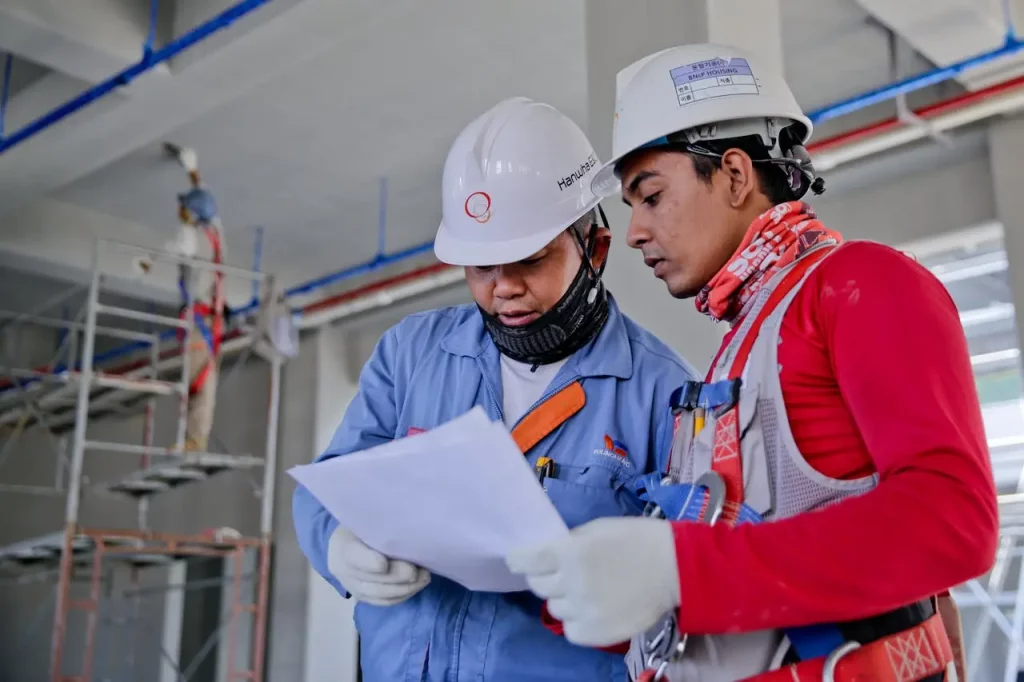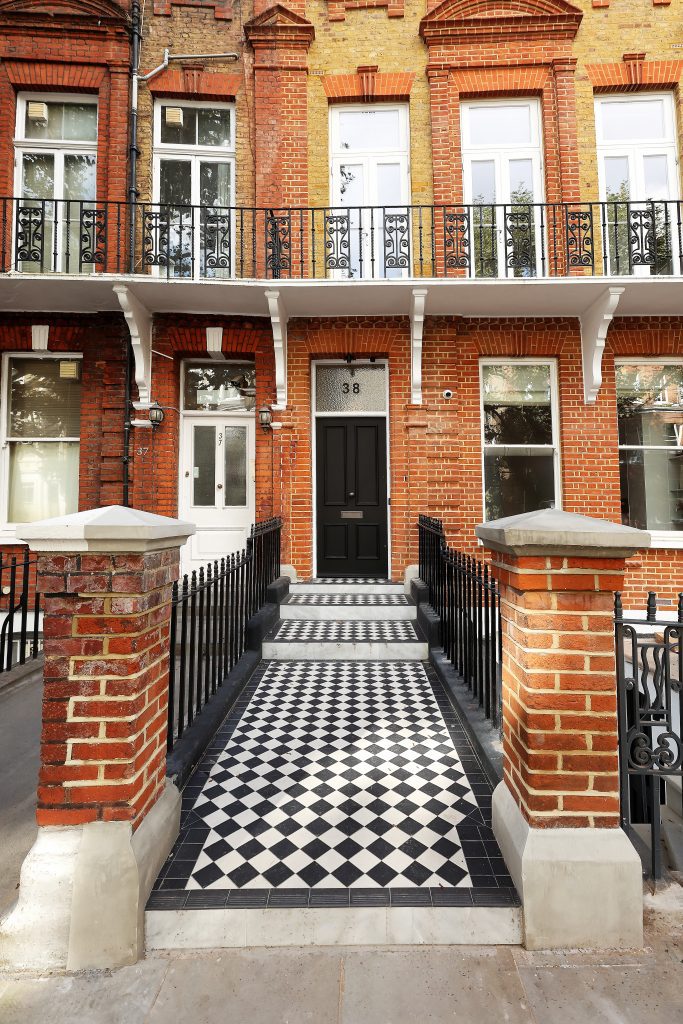Whether you’re planning to construct a new house or renovate an existing one, some changes require thorough review and approval from the local authority. Imagine you are planning to extend your living room or add a loft conversion. It might impact the privacy of your neighbors, emphasizing the need to seek permission to protect any future disputes or overcrowding. For the project to progress seamlessly, one needs to get planning permission.
This guide discusses a comprehensive approach to getting planning permission and addressing issues related to the procedure.
Understanding Planning Permission

Deeply understanding the ins and outs of planning permission is vital for anyone planning to start a house renovation project or construction project. Let’s check everything about the planning permission:
What is Planning Permission and Why is It Necessary?
Planning permission is a very crucial step taken by a local authority. It ensures that every renovation or construction plan adheres to all the necessary rules. However, it verifies that your plan designs align with building rules, seamlessly fit in with the area’s development rules, and keep safety on top. Thus, it’s a sign that your construction project meets all the guidelines before you start working on it.
Types of Projects That Require Planning Permission
Planning permission is perceived as easy, but it applies to a wide spectrum of renovation and construction, you might imagine. One must know how long does it takes to get a planning permission to build a house and prepare early. Let’s understand some common situations that need approval from your local authority:
- Building Extensions: If you are planning to add an extra room, garage, or conservatory, you need planning permission. The need for approval is checked by factors such as location, size, and impact on the neighboring property.
- Loft Conversions: Planning permission is required when you are planning to convert your attic into a living place. For such permission, responsible factors are adherence to fire safety, changes in the roofline, or affecting your neighbor’s privacy.
- Demolitions: If you are planning to demolish a building, planning permission is required. The factors that work here are the historic building, posing potential safety risks, or being a part of a conservation field.
- New Builds: Planning permission is always needed when building a new home, bungalow, or any other permanent living space from scratch. This guaranteed compliance with integration, building regulations, and zoning restrictions with the surrounding environment.
- Changing the Use of a Building: You need planning permission to convert your commercial space into a residence. This guarantees that the new house matches with local development plans and does not affect the surrounding environment.
How Long Does Planning Permission Take?

Overview of the Official Timeline for Planning Permission
The planning permission in the UK has a timeline of within 8 weeks for small applications and extends to 13 weeks for big applications. Yet, several factors can affect the real processing time. Let’s know in detail how long it takes to get planning permission:
Factors That Affect How Long Planning Permission Takes
- Complexity of the Project: Additional scrutiny is required to build more complex projects with complicated designs, extending the timeline.
- Public Consultation: Public input is needed when your project impacts the surrounding area, thereby adding time to the process.
- Local Authority Workload: When many applications are to be dealt with, the processing time increases.
- Completeness of Your Application: If you know how long do planning applications take and prepare all by attaching the necessary documents it reduces the need for extra talk, speeding up the process.
Detailed Timeline Analysis
This applies to projects that are less complex and don’t affect the surrounding area. Examples are carports, small extensions, sheds, and porches. Yet, here are some factors that can affect the timeframe:
- Consider a larger extension like a multi-story or some unique concept. Now, you must be wondering how long it takes for planning permission to be granted an extension in England. It takes more than 13 weeks, mainly if extra consultations with specialists like structural engineers are needed. On the contrary, a minor extension, such as a small port addition, may get approval before an 8-week timeframe.
How Long for Planning Permission: The Standard Procedure
The standard planning permission procedure takes around 8-13 weeks time period from submission to decision. However, this timeframe can change depending on certain factors mentioned above.
How Long to Get Planning Permission for an Extension
When it comes to extensions, they have a shorter processing time in comparison with new build or more complex constructions. On average, it takes around 8-10 weeks to make a decision on this.
How Long Does Planning Permission Take for a Complete New Build
For a new build, the process might be lengthier to get planning permission in comparison with other extensions or any changes. For a new build project, the timeframe lies between 3 months to over 12 months. All this depends upon the toughness and any future challenges faced in the process.
How Long Does a Planning Application Take: Variations Across Different Projects
Let’s understand the processing times variation for a particular project type in comparison to the standard processes:
- Loft Conversions: Loft conversions usually lie within an 8-13 week time period. Yet, if you talk about extensive roofline modifications or future overlooking challenges for neighbors, it might require longer.
- Demolitions: The standard timeline goes well with the smaller structures or straightforward demolitions. Yet, complex ones like historical buildings or structures in conservation fields may include some extra assessments, thereby extending the waiting period.
Navigating the Planning Application Process

Step-by-Step Guide to Submitting a Planning Application
- Research Local Development Plans: Initially, study everything about the development plans for your local area to examine any significant guidelines or restrictions.
- Consult a Qualified Planning Consultant (Optional): Try to seek professional help to run the process seamlessly.
- Prepare Your Application: Make meticulous plans, supporting documents, and drawings as your local authority demands.
- Submit Your Application: Finish your application and pay the required fee either by post or electronically.
- Await a Decision: Then, wait for the local authority to review your application; they might ask you to submit extra information before making a decision.
Tips to Ensure Your Application Is Processed as Quickly as Possible
While submitting a planning application, remember that efficiency is required to avoid any future delays. The following are some tips to make sure your application is processed as quickly as possible:
- Seek Pre-application Advice: It is recommended to discuss your plans with your local authority before submitting your application to avoid any potential issues and ensure your application is complete.
- Submit a Complete Application: Prepare your application well and compile all the documents demanded, as this reduces any future delays due to missing information requests.
- Respond Promptly to Requests: If you have been asked to add extra information by the local authority, respond instantly to prevent delaying the processing of your application.
Avoiding Delays in Your Planning Application
To check whether your planning permission application is processed smoothly, avoiding any potential common delays is crucial. One of the best ways to prevent any delays is to ensure your application is detailed and has all the information and documents. Incomplete applications frequently result in requests for extra information and increase the overall time. If you thoroughly prepare your application by attaching all the necessary documents, you can lessen the delay risk by missing further requests.
Common Reasons for Delays and How to Avoid Them
For a streamlined planning permission procedure, it’s crucial to scrutinize common reasons for delays. Let’s understand some prime factors to consider:
- Incomplete Applications: Ensure that your application is detailed and has all the necessary documents to avoid any future delays caused due to missing information.
- Poor-Quality Plans: Planning permission is given after reviewing certain things. So, invest in clear and professional-looking plans to reduce further confusion and any modifications. Hence, it speeds up the planning permission process.
- Unforeseen Issues: Always be ready for any unforeseen concerns in the process by keeping yourself flexible and prepared to address extra assessments very quickly.
- Public Objections: Handle any future objections from the public without any delay, as the processing time gets extended in public consultations.
The Role of Pre-application Advice in Speeding Up the Process
If you consider taking pre-application advice from your local authority, it can reduce potential delays. This step permits you to bring out potential issues and solve them before submitting your planning permission application.
What to Do If Your Planning Application Is Delayed or Refused

While you have gone through the ways to streamline your planning permission application process, any potential delays or future refusals can still arise. Let’s check how to navigate these issues:
Understanding the Reasons Behind Delays and Refusals
Any refusal or delay in your planning permission application may arise for several reasons. Knowing these reasons helps in addressing the problems properly. Some common causes are:
- Incomplete or Inaccurate Application: If there is any error or the information is missing from your application, it might be refused or delayed. So, check properly that your application is complete and correct.
- Concerns from Stakeholders: There may be objections from neighbors or others, resulting in refusal or delays. Any concerns raised by stakeholders need to be addressed so that a solution comes out of it through compromise or negotiation.
- Non-compliance with Regulations: If you fail to follow the planning rules or guidelines, your application may get refused or delayed. So, be aware of the relevant rules and ensure you meet all the requirements.
Steps to Take If Your Planning Application Is Not Progressing as Expected
- Contact Your Case Officer: Don’t hesitate to reach out to your local authority case officer. Tell the officer everything and seek clarification on the issue and the reasons behind the refusal or delay. Openly communicating with the officer assists in knowing what is required to be done to go ahead.
- Consider Revisions: Don’t get instantly discouraged if your application gets refused. Try revising the application based on the feedback you received and resubmit your application.
- Appeal the Decision: You have full right to appeal a planning refusal to the Planning Inspectorate, an independent body that reviews every planning decision. All this procedure includes submitting an appeal form and potentially attending a hearing to present your case. So, be careful regarding the potential house renovation cost and further implications of an appeal before proceeding with your application.
Why Choose Fittra for Your Construction Needs

Introduction to Fittra: Your Most Convenient Construction Company in West London
Fittra is your companion in every type of construction needed in London. We are a construction company and believe in making your dreams a reality, from navigating the intricacies of planning permission to the final touches. Whether you need a house extension in London, a complete build home, or a loft conversion, we have a skilled team of experts to guide you at every step.
The Fittra Advantage: Why We Stand Out Among Building Companies
We understand that construction is a daunting job, mainly if it’s planning permission. Let’s check out how we make a difference:
- Experienced Team: Our dedicated team of highly qualified experts have extensive experience in managing planning permissions. We have a proven set of records of securing approvals for a broad spectrum of projects.
- Streamlined Process: We make the navigation easier for the planning permission process. Our team will work closely with you to ensure your permission application is detailed and compliant, reducing delays.
- Project Management: We provide detailed project management services, scrutinizing every part of your construction from the start to the final stage. With this, you get a smoother experience.
Our Services: From Extensions to New Builds and Beyond
Fittra provides a broad spectrum of construction or renovation services in London that fulfil your requirements. Our team specializes in new builds, extensions, renovations, loft conversions, etc. It doesn’t matter what the scope or size of the project is, we cater to all with remarkable results. To find us, you can search home renovation near me in London to get the best service in town.
The Fittra Process: Easy, Stress-Free, and Tailored to You
We believe in providing seamless and top-notch services for our clients. Our team follows a streamlined approach and maintains open communication, stress-free experience, and efficient project management. We collaborate with you at every step of the way and ensure you stay on track.
Why Trust Fittra: Our Accreditations, Customer Feedback, and Unique Offerings
At Fittra, we are proud of our ethical practices, commitment to quality, and customer satisfaction. Our team constantly works on customer feedback and ensures it meets your expectations. Furthermore, we deliver perks like transparent pricing and a dedicated project manager, guaranteeing a seamless experience.
Conclusion
Understanding the planning permission process and the timelines related to it empowers you to form sound decisions about your construction or house renovation project. By following the steps mentioned above, you can easily handle the process without fear and reduce any chances of delays. However, it’s significant to emphasize detailed preparation, seeking professional guidance, and effective communication when needed.
FAQs on Planning Permission
How Long Does Planning Take for Different Types of Projects?
It takes around 8-13 weeks for minor construction or renovation projects and extensions. In the case of complex projects like roofline changes, loft conversions or new homes, it might take a little longer due to extra examination. So, always check with your local authority for the right time frame for your project.
Can I Alter My Plans Once Full Permission Has Been Granted?
Some minor changes might be acceptable, yet vital modifications usually need new planning permission.
How Does the Complexity of a Project Impact the Planning Permission Timeline?
The more complex the construction or renovation projects are, the more scrutiny is involved, thereby increasing the processing time.
Are there Differences in Planning Permission Timelines Between Residential and Commercial Projects?
The impact on the surrounding area and the intricacy are the major factors that influence permission processing times, not the specific project type like commercial or residential.
What Common Pitfalls Lead to Delays in the Planning Permission Process?
Any unforeseen issues, incomplete applications, poor-quality plans, and public objections are the main reasons for permission delays.
How Can Changes in Local Government Policies Affect the Duration of Planning Permission?
Changes in local development plans or building regulations might necessitate revisions to your planning permission application, thereby affecting the timeline.








